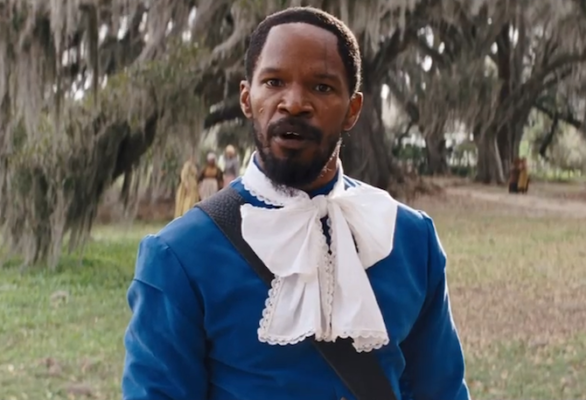Search
To search for an exact match, type the word or phrase you want in quotation marks.
A*DESK has been offering since 2002 contents about criticism and contemporary art. A*DESK has become consolidated thanks to all those who have believed in the project, all those who have followed us, debating, participating and collaborating. Many people have collaborated with A*DESK, and continue to do so. Their efforts, knowledge and belief in the project are what make it grow internationally. At A*DESK we have also generated work for over one hundred professionals in culture, from small collaborations with reviews and classes, to more prolonged and intense collaborations.
At A*DESK we believe in the need for free and universal access to culture and knowledge. We want to carry on being independent, remaining open to more ideas and opinions. If you believe in A*DESK, we need your backing to be able to continue. You can now participate in the project by supporting it. You can choose how much you want to contribute to the project.
You can decide how much you want to bring to the project.

“D-J-A-N-G-O, Django. The D is silent”. Is how the hero (Jamie Foxx) at one point addresses the evil plantation owner, Calvin Candie (Leonardo DiCaprio). The hallmark phrase identifies the great protagonist of the filmmaker’s latest presentation: language. In the films of Tarantino, language has established itself in its own right as a tool that articulates infinitesimal differences. A seismograph, that reveals the tiny differences which make the everyday a world full of nuances and flavours. The reader will already have in mind Vega and Winnfield’s famous conversation about hamburgers in Pulp Fiction… and many other brilliant dialogues.
In this respect, in Django Unchained the protagonists talk English, German and the odd word in French. There is no doubt that Quentin Tarantino is a compendium of everything that postmodernism and postmodernity can have come to mean and/or represent. It’s worth imagining, for the same reason, what would have come of his figure in other times when the bygone linguistic revolution, the deconstruction of genres, pastiche, irony, quotations and meta-language would seem to demand something more constructive? More positive?
The days of Reservoir Dogs (1992) and Pulp Fiction (1994) are long gone; unidentified flying objects destined to shake up the entrails of this indispensable archetype that is the cinematographic genre. There was a sense of this when I headed to the nearest cinema, with equal measures of curiosity and low expectations. My response to this state of uncertainty is this review. Django Unchained grew on me during the screening (digital). Taking form in its excessive length, that in my opinion does it no harm, paying no heed to the criteria of cinephiles about whether the film is less inspired or less well rounded. Because Django, apart from entertainment, introduces formalisations and politically incorrect content that even though they were already to be found in its predecessor Inglourious bastards (2009) now seem even more sickening, as if the director has lost his sense of the ridiculous and has thrown himself headlong into doing whatever he fancies.
The dialectic duel between Herr Doktor King Schulz (Christoph Waltz) and Calvin Candie (DiCaprio) is an authentic tour de force of majestic proportions, while the acquisition of self-awareness of this Black Panther, Django, that is in no way, in accord with the criticisms that Spike Lee has thrown at the film. It’s evident that Lee hadn’t seen the film, or they had only told him about it. It’s worth mentioning what Lee said; basically that what happened to his ancestors wasn’t a spaghetti western, but genocide.
Undoubtedly Spike Lee would have preferred a historic fresco filmed by Steven Spielberg along the lines of Schindler’s List (1993), or the current Lincoln (2012). It’s worth asking, if these forms of narrative, supposedly full of respect for historic facts, aren’t just clichés or recurring methods that no longer bring anything to the language of film. But it seems that Spike Lee wasn’t demanding this set of conventions, so much as what irritated him was the ascription of such a serious subject, slavery, to an “ignoble” or bastard subgenre, such as the spaghetti western. In short, a subgenre or a minor form, unsuitable for the noble content which it aspires to represent.
But that’s when the miracles occurs, as only from the margins of this subgenre can history be narrated in another way, opening up the opacities to a position of divergent understanding, inverted and distanced from the dominant status quo.Django Unchained, rather than a spaghetti western about slavery prior to the American Civil War, is more than anything else, literally, a transvestite-film, a parody about another parody that is predisposed to appropriate and intentionally distort. What I mean is it is, literally, a queer film (and I’m not referring exclusively to the moment when Django adopts some fairly garish anachronistic clothing) so much as how it establishes a post-identitarian plea or its profound discomfort with regard to the canons of representation of the oppressed black minority. This question, that of the canon, needs clarification: Django Unchained is a post-identitarian film, in late post-modernism where the canon no longer exists, where to talk of the canon means to talk in obsolete, modernist terms. Other post-identitarian artefacts are The Wire, or even the comic parodies of Tyler Perry, dressed up as a “black momma”. Racial representation, or that of the oppressed class, of whatever form it may be, no longer responds to any canon.
That said, it’s worth briefly analysing the controversy surrounding the last two films by Tarantino: I’m referring to how they deal with History (with a capital H). If we agree that Tarantino is a species of animal directly opposed to that of Chris Marker, then there shouldn’t be any motive for irritation. Just as, if we agree that despite the evident connections between the American and his much admired Jean-Luc Godard, both come from such remote universes, that it is equally the case. The key is in being able to elucidate the use of a cultural artefact of mass consumption, such as the film by Tarantino. I don’t think it would serve for a history class in a high school.
As a result, the prior declarations by certain French intelligentsia (such as the “new philosopher” Bernard Henri-Levi) end up totally moralising and reactionary when they warn about the influence that the historical errors in false narrations about history, according to the representation of Nazism in Inglourious Bastards, can have on our adolescents. But to say quite the opposite, that Tarantino, like Walter Benjamin, seems to think that the past can be modified from the present, and that fictions don´t simply have to repeat history so much as can also set out to modify it, can easily become an exercise of critical funambulism. My position in this respect is on neither one side nor the other, being closer to the potential of the subgenre as utopia, or as Jordi Costa said in the latest edition of Caimán Cuadernos de Cine, “the cinema of subgenres is the utopian territory of fulfilled desires”. If we think of Django Unchained as a science-fiction western maybe the utopia will be more clearly revealed. Tarantino doesn’t need science fiction he has more than enough with his own particular melange. But the effects are very similar.

Peio Aguirre writes about art, film, music, theory, architecture and politics, amongst other subjects. The genres he works in are the essay and meta-commentary, a hybrid space that fuses disciplines on a higher level of interpretation. He also (occasionally) curates and performs other tasks. He writes on the blog “Crítica y metacomentario” (Criticism and metacommentary).
"A desk is a dangerous place from which to watch the world" (John Le Carré)